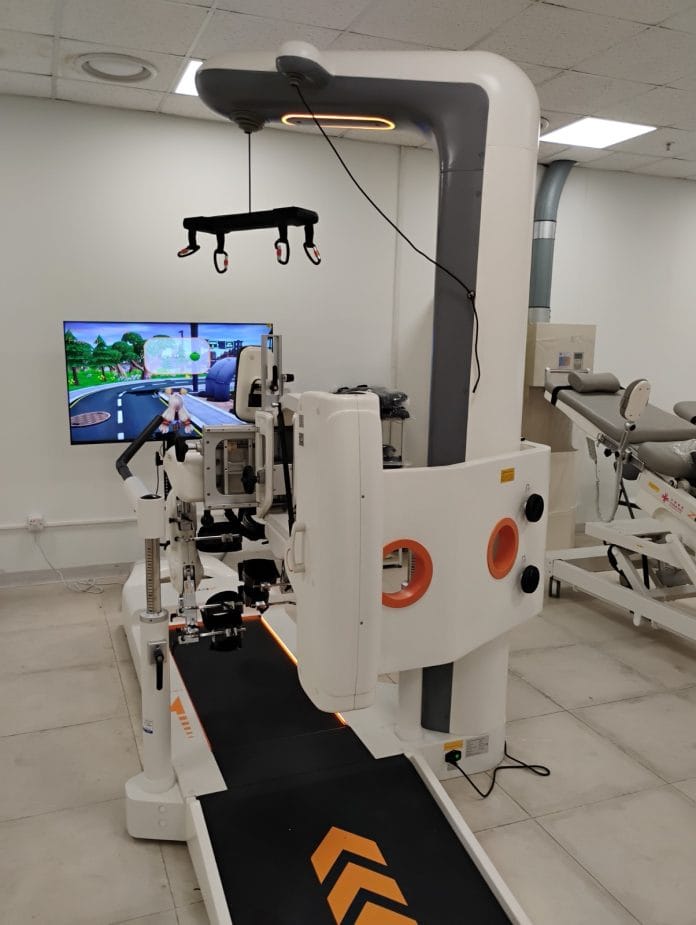Bangladesh is ushering in a new era in neurological rehabilitation with the launch of its first-ever Robotic Rehabilitation Center. A pilot project will commence on a limited scale this Thursday at the super-specialized hospital of Bangladesh Medical University (BMU) in Shahbagh, Dhaka, According to a post on the verified Facebook page of Chief Adviser of the interim government.
Set up with technical assistance from China, the center has been built to international standards and aims to provide advanced, precision-based rehabilitation services for patients suffering from paralysis and chronic neurological disorders.
According to sources, the Chinese government has donated robotic equipment worth approximately Tk 20 crore for this project. Once fully operational, the center is expected to be one of the most advanced robotic rehabilitation centers in South Asia, marking a groundbreaking milestone in the country’s healthcare landscape.
The facility houses 62 robots, including 22 powered by Artificial Intelligence (AI). These robots are designed to deliver highly accurate physiotherapy, neuro-rehabilitation, and long-term therapeutic care based on individual patient conditions.
As part of the preparation, a seven-member team of Chinese biomedical engineers has already trained 27 local doctors and physiotherapists. Once the trained personnel gain sufficient hands-on experience and key procedures are successfully implemented, the center will be opened for full-scale operations.
The robotic center is expected to provide significant support to patients recovering from stroke, paralysis, neurological disorders, chronic pain, nerve injuries, frozen shoulder, accident-related complications, and other physical impairments that require complex rehabilitation.
Notably, survivors of the July student-led mass uprising—many of whom continue to suffer from long-term injuries—will receive free robotic therapy at the center.
While the center initially serves specific groups, BMU officials confirmed that services will gradually be expanded to general patients under a planned policy framework. Efforts will also be made to ensure that treatment costs remain within patients’ financial reach. The launch of this facility marks a new chapter for Bangladesh in modern, technology-driven rehabilitative care. Beyond being a technological leap, the center stands as a beacon of hope for those living with paralysis and chronic illnesses.

